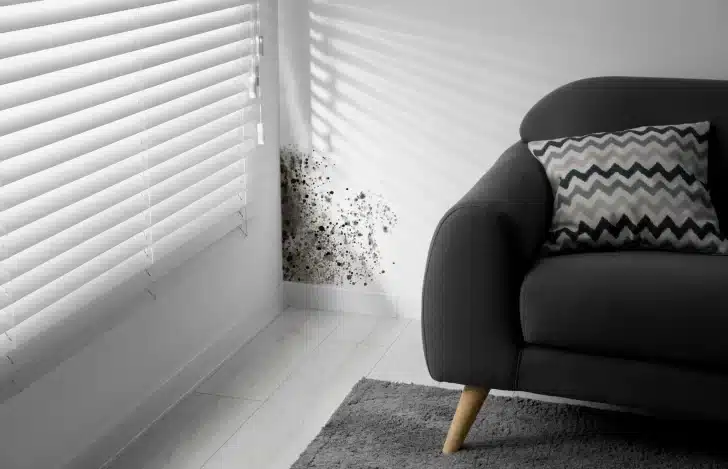What to Do if You See Mold in Your Apartment

17Mar
What to Do if You See Mold in Your Apartment
Mold is a common and serious problem for many tenants in San Francisco. Prolonged exposure to mold inside your home can cause numerous health issues. Mold is also usually a sign of poor insulation or a water leak that was not properly addressed. Your landlord has a duty to address a mold infestation, and you may have grounds to sue your landlord if they do not follow through.
Landlords are responsible for providing habitable rental units, which means they must be safe to live in. But when landlords or property managers don’t uphold their responsibilities, what can renters do? In this article, we’ll discuss how to respond if you see mold in your apartment.
Notify Your Landlord in Writing
While your landlord has a duty to repair mold, you as the tenants have a responsibility to inform your landlord of issues within the unit. In order to create a record that your landlord knows about the mold, it is important you notify your landlord in writing and keep a copy of any communications for your records. That way, your landlord can’t deny knowing about the problem if things escalate and you need to take legal action.
Get a Mold Test
Not all mold is created equal. Some varieties of mold are more dangerous than others. Additionally, just because you can see mold doesn’t mean you have the whole story. Mold remediation specialists can test your apartment for mold by taking surface and air samples to determine what mold spore varieties are present and in what quantity. If you think you have mold, ask your landlord to test for mold or consider hiring a professional yourself to test your home.
If the report shows high levels of mold, it is time to talk to an attorney to discuss options.
My Landlord Insists on Using Bleach or Having a Handyman Clean the Mold Themselves
A serious mold infestation requires proper mold remediation by a licensed mold remediation specialist. Wiping the walls will not address the cause of the mold and typically only leads to mold returning again. To eradicate mold will typically require tearing out walls and drying out all affected areas. You have a right to insist on your landlord fixing the problem the right way.
My Landlord Says They’ll Fix the Mold but Won’t Relocate Me
In most circumstances, it is neither safe nor appropriate for a tenant to continue to live in a moldy apartment while mold remediation work is being done. The mold remediation process involves opening up walls/ceilings and potentially releasing more mold spores into the unit. You have a right to live in a safe environment, and your landlord has a duty to handle repairs in a safe manner.
If your landlord won’t take action or is refusing to handle the repairs the right way, contact a mold lawyer to discuss your options.
Seek Medical Attention if You Experience Mold Related Symptoms
Mold exposure can cause a variety of physical symptoms, including:
- Itchy eyes
- Headaches
- Sinus problems
- Respiratory issues
- Nausea
- Lung infections
- Skin inflammation
- Internal organ damage
- Cognitive issues
If you begin to experience headaches, respiratory issues, or any of the other symptoms listed above, consult with your doctor or a qualified medical professional. If your health is being impacted by exposure to mold, having medical records to back up your claim will be important.
Document Everything
Keeping detailed records of communication with your landlord is essential. Issues should be reported to your landlord in writing whenever possible to create a record of exactly what is wrong and when the landlord was informed. You should also document as much as possible about the issue, such as when and where mold is seen in the unit, if any of your belongings are affected, symptoms or health issues related to mold exposure, and possible causes of the mold, such as leaking pipes.
Help for Tenants Dealing with a Mold Problem
Tenants in San Francisco have the right to live in a safe and healthy environment, free from mold. Tenants who find mold in their rental unit should contact their landlord or property manager immediately. If the landlord fails to act, consult an experienced tenant’s rights attorney.
The team at Wolford Wayne is dedicated to protecting tenants in cities like San Francisco, Oakland, and Berkeley. We help renters fight for their right to a clean, safe rental home. If your landlord refuses to address mold or any other serious repair issue in your unit, call our office or message us to discuss your legal options.
Related Posts You Also May Like
Get Started
For more information or to discuss your legal situation, call us today at (415) 649-6203 for a phone consultation or submit an inquiry below. Please note our firm can only assist tenants residing in San Francisco, Oakland & Berkeley.





